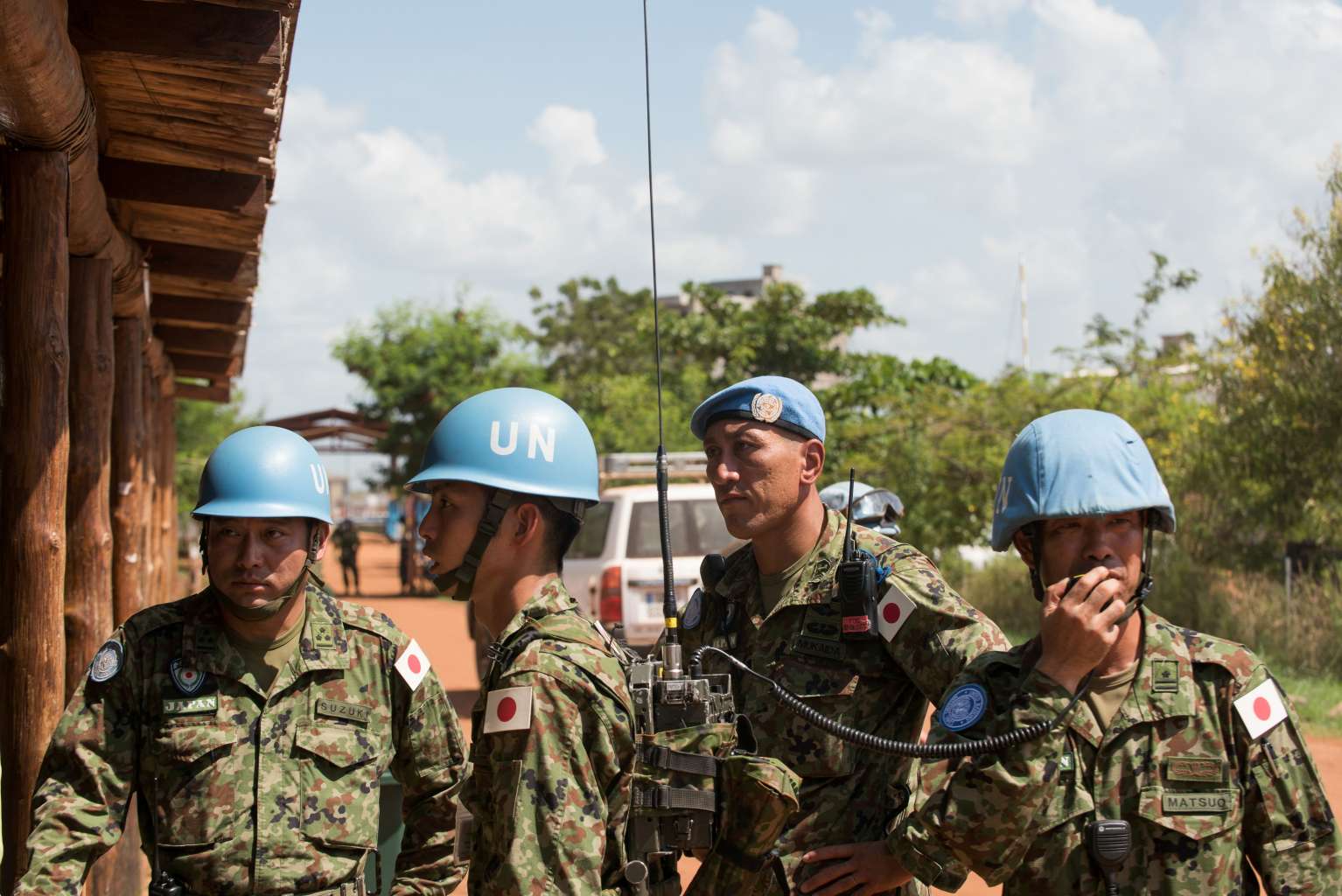Japan sends troops on South Sudan rescue mission, first duty under controversial new laws
Sign up now: Get insights on Asia's fast-moving developments

Japanese soldiers on United Nations peacekeeping operations await the arrival of Defence Minister Tomomi Inada at a military base in Tomping Juba, South Sudan, on Oct 8, 2016.
PHOTO: AFP
Follow topic:
TOKYO - Japan's military troops were on Tuesday (Nov 15) given their first assignment under controversial security laws that came into force in March - to rescue United Nations staff and other friendly forces who are under siege in South Sudan.
The order, which is in line with new guidelines concerning the use of weapons, was decided at a Cabinet meeting in Tokyo on Tuesday. It will apply to the Self-Defence Forces (SDF) troops who will be dispatched to the conflict-torn African country on Sunday, and who will officially take over from the current 350-member unit on Dec 12.
The contentious laws came as Japan reinterpreted the United States-written post-war pacifist Constitution to allow it the right to exercise collective self-defence, and go to the aid of ally nations under attack.
Currently, the use of weapons during UN peacekeeping missions is limited to strictly self-defence and to avert danger. But with the new order, SDF personnel can proactively fire warning shots so as to deter rioters or an armed group. They can also return fire if attacked, or feel they are in life-threatening danger.
The SDF will also be expected to play a bigger role to protect UN peacekeepers' camps, by jointly defending these areas with troops from other nations - even if they are not directly under attack.
Prime Minister Shinzo Abe said at the Diet on Tuesday: "South Sudan cannot assure its peace and stability on its own and for that very reason, a UN peacekeeping operation is being conducted."
He added that the SDF "is carrying out activities that only it can do in a tough environment".
Defence chief Tomomi Inada said she hopes the SDF "will work to contribute to the peace and stability of South Sudan, feeling pride that they have gone through rigorous training".
When the new laws were enacted in March, Mr Abe stressed that they will enable Japan to more actively contribute to regional security and international peace-building efforts.
But critics have argued that the changes will embroil Japanese troops in military action abroad for the first time since Japan was defeated in World War II.
Japan's SDF personnel have been deployed in South Sudan - which gained independence from Sudan in 2011 - to help build roads and other infrastructure as part of a UN mission since 2012.
While it is unconstitutional for Japanese troops to engage in acts of combat as part of an interational armed conflict, Tokyo reportedly maintains the situation does not constitute "armed conflict" as such, because the government and rebel forces have a will to "seek a peaceful resolution".
Despite a peace deal struck between government forces and rebels in August 2015, renewed fighting in the capital of Juba in July this year killed more than 270 people.
Japan's Ministry of Foreign Affairs said in a statement on Tuesday: "Five years have passed since its independence, and currently domestic political disorder is a great challenge to the nation-building of South Sudan.
"The Government of Japan recognises that the peace and stability of South Sudan is important for the peace and stability of Africa, and that the international community needs to work cooperatively on this issue. "
waltsim@sph.com.sg

